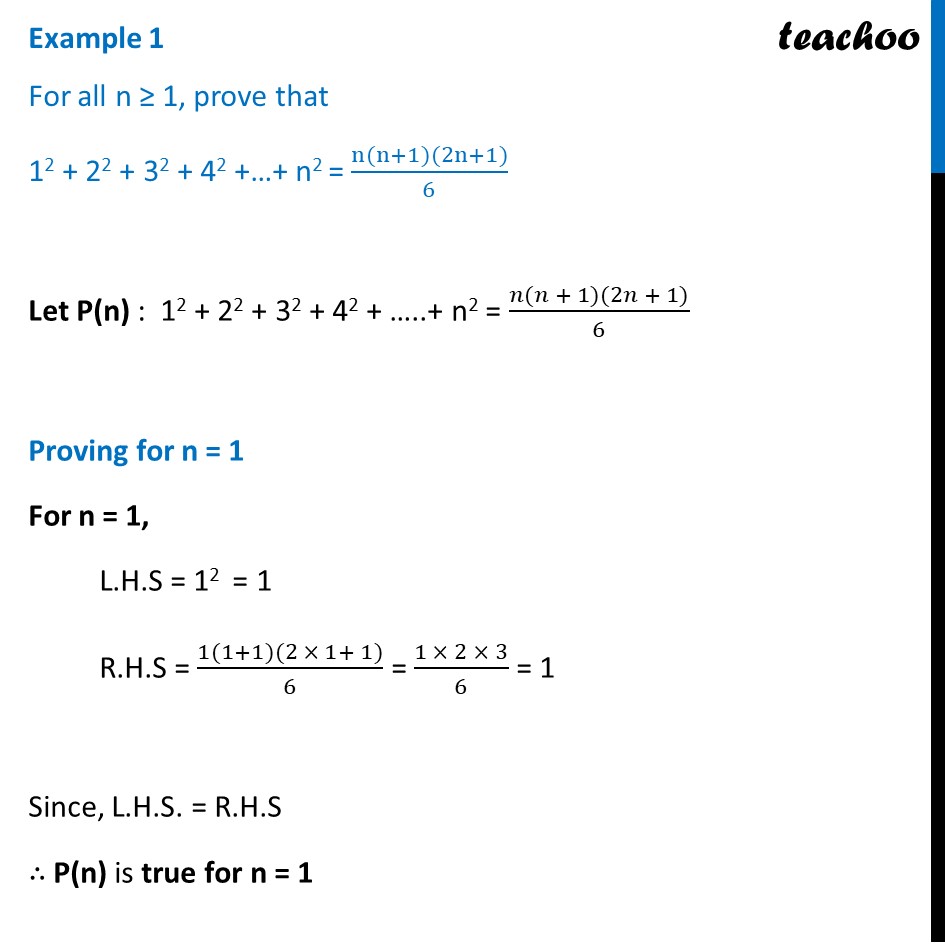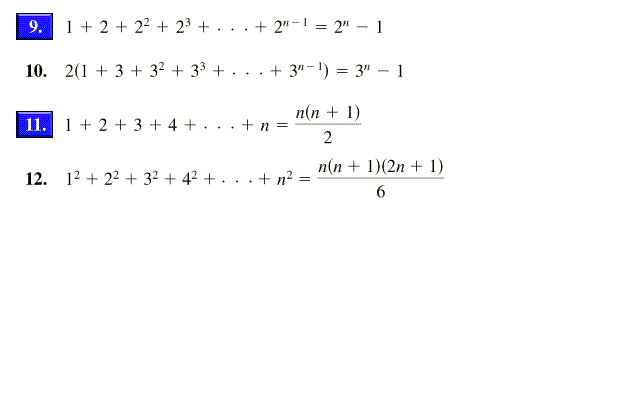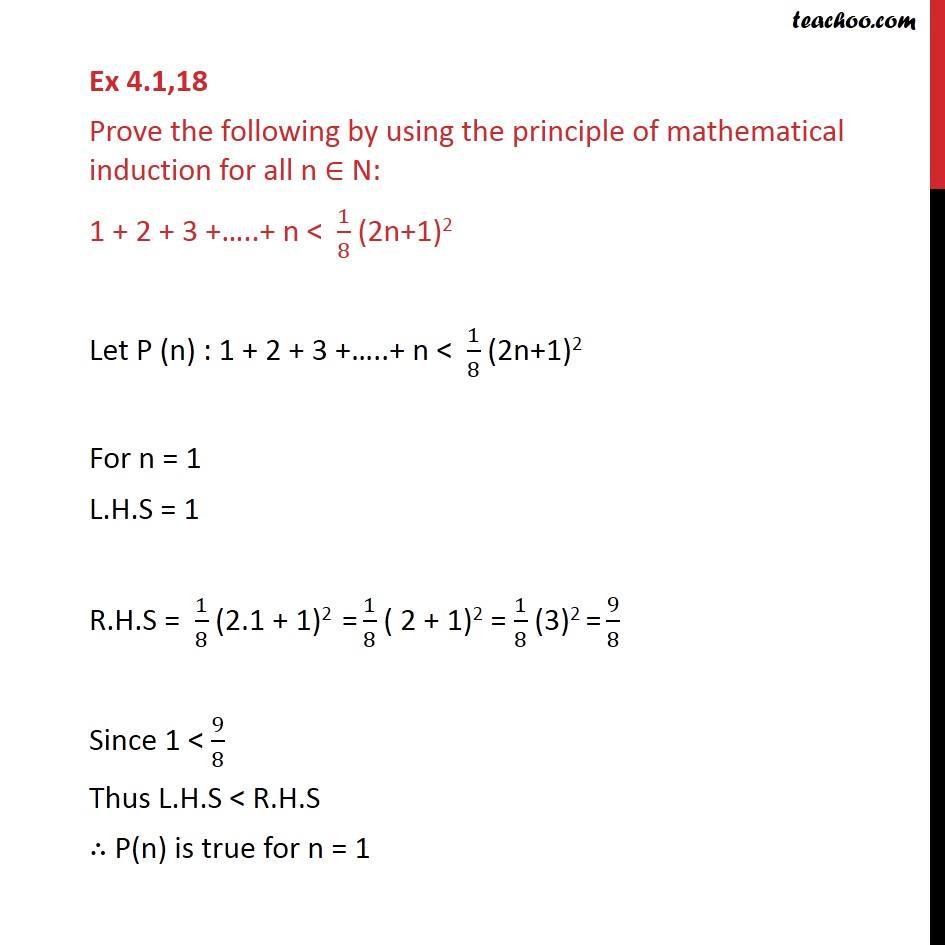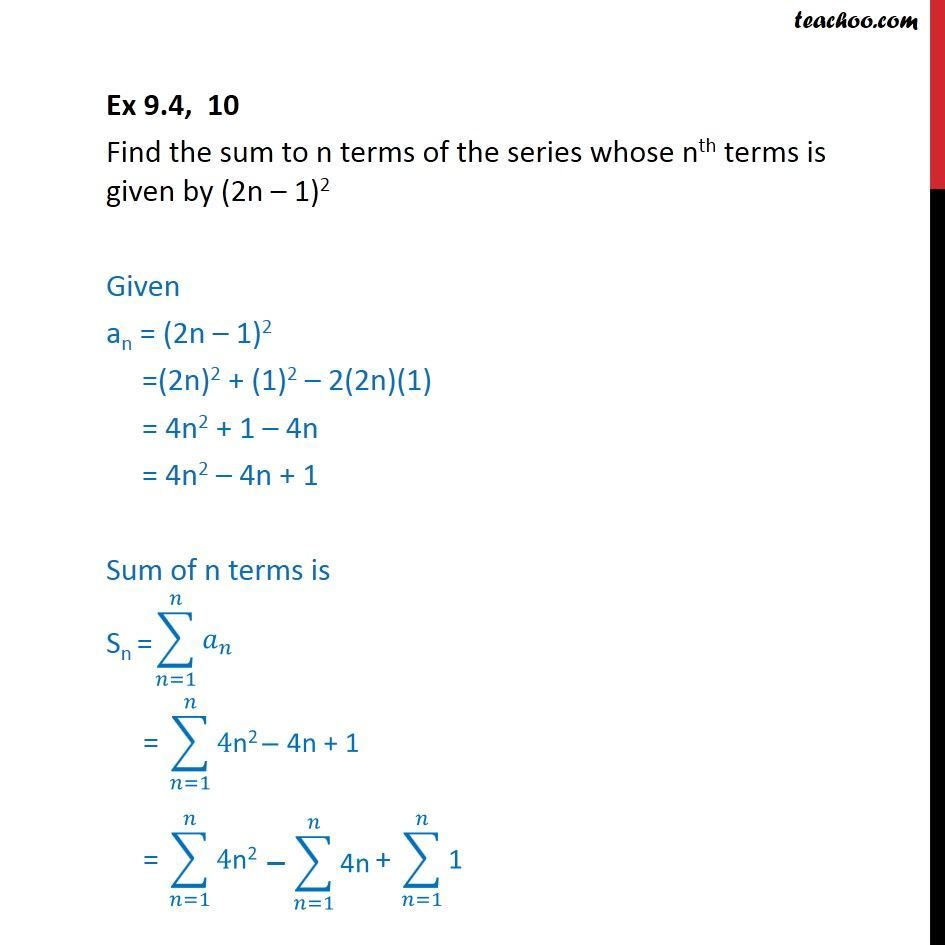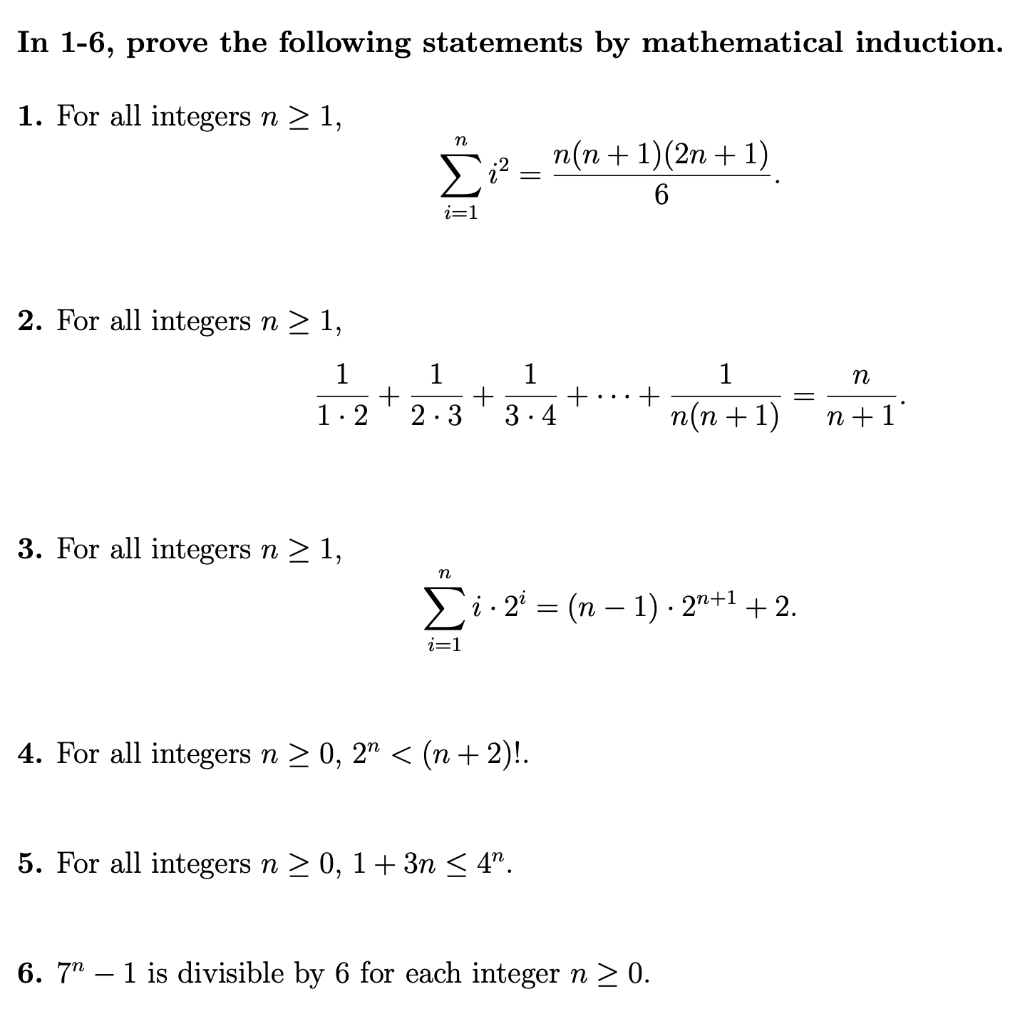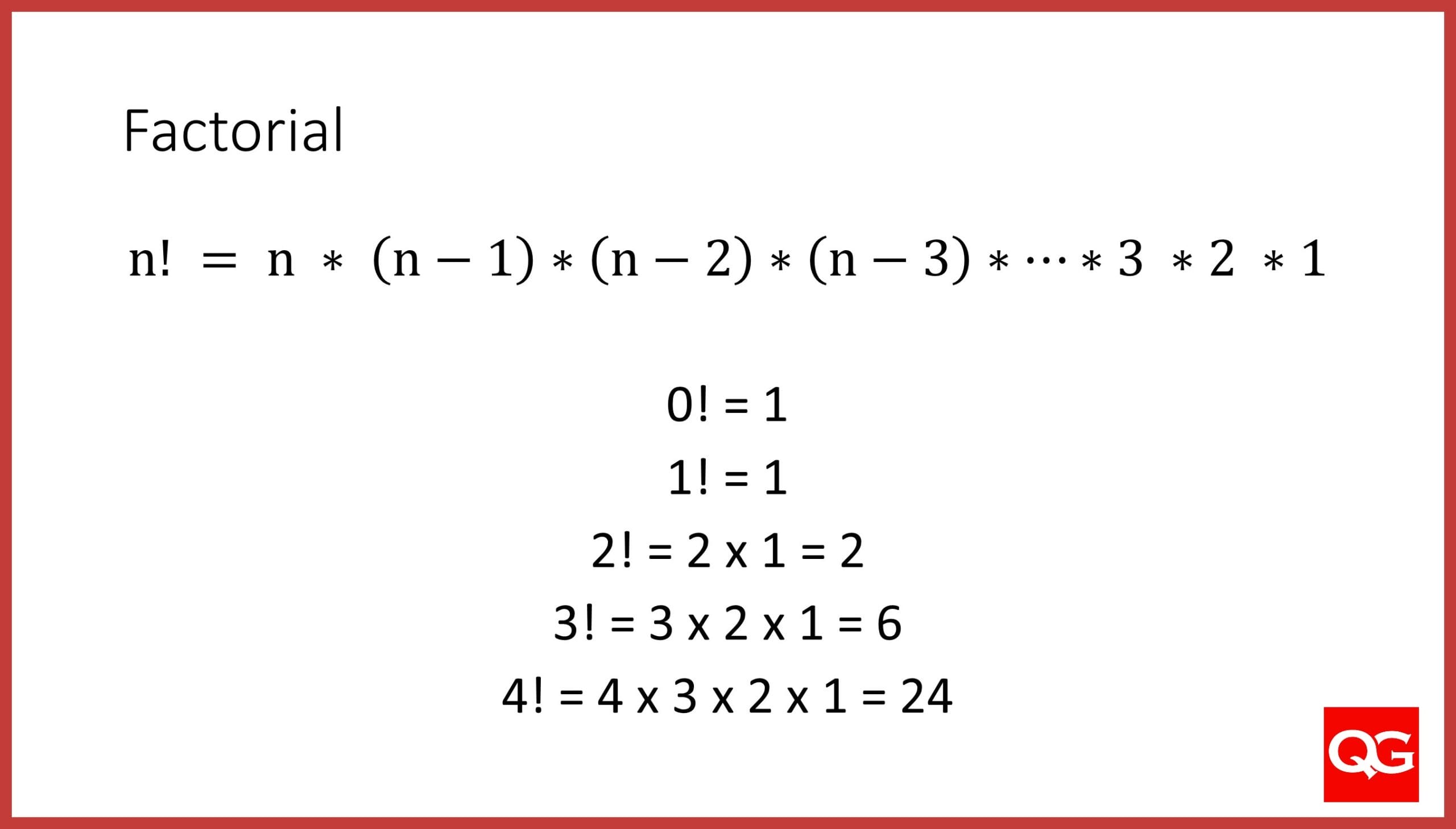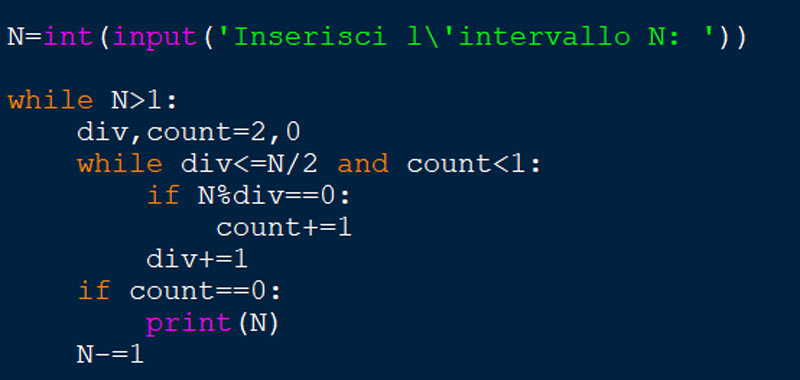
summation - Is there any. elementary formula for the sequence$\sum_{k=1}^{n }\left(2k-1\right)\left(\frac{1}{2}\right)^{k}$ - Mathematics Stack Exchange

summation - Confusion about how to prove $\sum_{i=0}^n 2^i = 2^{n+1}-1$ for all $n\geq 0$ by induction - Mathematics Stack Exchange




